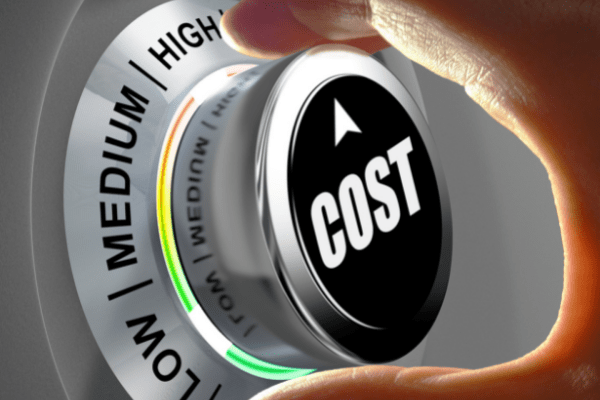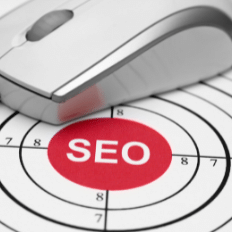Whoever said online commerce is comprehensible, was sorely mistaken. Why is that? Well, for a startup and even a well-established eCommerce store, navigating through what the best online store platform might be, is a big challenge more often than not.
If earlier we’ve discussed the pros and cons for two of the biggest eCommerce platforms out there, WooCommerce and Shopify, now it’s time to have another comparison – BigCommerce vs. Shopify.
Let’s see which one is the best and why.
But first things first, we’ll get to know those two and see where they came from and what makes them the best.
SHOPIFY
This eCommerce platform was founded in 2006 by two entrepreneurs seeking something else for their own online store. When they started working on their eCommerce store of snowboarding apparel, they found out many things were missing in optimization. So, one of the owners who was also knowledgeable in this field created Shopify. In 2009 they made their API and began selling the platform.
One of the biggest changes Shopify has made was working on the POS (point of sale) for the eCommerce business. Then in 2013, they implemented payments and gave up the third-party gateways. Everything seemed easier with Shopify.
BIGCOMMERCE
BigCommerce was founded in 2009 in Australia by two entrepreneurs who, according to Wikipedia, met in an online chatroom in 2003.
This platform grew over the years and is now one of the most appreciated eCommerce platforms out there. Google states that in 2019 BigCommerce revenue surpassed 100 million USD. So, not bad for an up-and-coming online platform.
It has its own hosting and is easily navigated from pretty much everywhere, provided you have internet and a laptop or a mobile phone.
BigCommerce is a SaaS (Software as a service) solution, meaning you won’t own the software, but you’ll pay a monthly fee for using it.
Now, that we have more insight about those two platforms and we know where they came from, let’s see what are their main features we should look for when implementing an online store solution.
Our comparison, Shopify vs. BigCommerce is based on several criteria: price, ease of use, design, customer support, payment processing, extensions.
PRICE

When we talk about opening an online store, one of the first things we take into consideration is pricing. What will it take to open it, how much the platform we will use is going to cost us?
When talking about BigCommerce pricing we have several plans and even a 15-day free trial where you can check out its features and see if you two are compatible.
The other BigCommerce price plans are: Standard – at 29.95$ a month, Plus – at 79.95 $ a month, Pro
– at 299.95 $ a month and Enterprise which varies and you’ll have to contact their sales to draw an offer.
Also, the BigCommerce price for Pro and Plus plans will have a discount of 10% if you pay in advance for a year.
As for Shopify pricing, they also have plans which include the following: Lite – at 9$ per month, Basic Shopify – at 29$ per month, Shopify – at 79$ per month, Advanced Shopify – at 299$ per month and Shopify Plus – which is a personalized offer.
Shopify also has a 14-day free trial, a 10% discount if you pay up-front for a year, and a 20% if you pay for 2 years.
Shopify can compare at price with BigCommerce, the only difference being its first plan, Lite.
For the startups that have a limited budget, Shopify seems to be the better option when talking about price plans. But, of course, there is a “but”, take into account that the cheapest plan gets you a “BUY” button on your own website, on a social media store, or any other existing site. So…if you want to get a full platform, this is not the solution.
For roughly the same money, both BigCommerce and Shopify offer you the same features and limitations in the Basic/Standard plan. The only difference here is that BigCommerce comes with no limit for the number of accounts you can make for staff.
Winner Shopify vs. BigCommerce pricing: It’s a tie
EASE OF USE
While these days you don’t have to be a tech genius to upload and operate an online store, it’s no wonder that ease of use is a big deal when choosing an eCommerce platform. So which one, Shopify or BigCommerce will come on top?
When entering the admin panel, you can see that both Shopify and BigCommerce have an intuitive and straightforward editor. Actually, one of the main reasons Shopify has so many great reviews is the ease of use of the dashboard.
While managing your store and taking care of orders, setting up new products, and all that is easy to handle in the BigCommerce dashboard, the advanced options could be a bit trickier. If you are not tech and web-savvy, you’ll definitely need some team support on those features. Lucky for you there are online communities and forums which are ready to help with those elements.
On the other side, Shopify is one of the most user-friendly platforms out there.
You don’t need to be well versed in what online shopping is about to set up a store in a couple of hours using Shopify. The plugin has everything you need already, being like the skeleton of a house. When you come with the other features it’s like adding the décor, and the house is ready to be used. But is it enough to make it the best online store builder?
So, who’s going to be the winner this time, BigCommerce or Shopify? While they both are great with the backend elements, Shopify seems to have the upper hand by just a smidge.
Winner: Shopify
DESIGN

While features that demonstrate how powerful an online store builder is what you’ll need in the tech department, there is also something important to take into account: design.
Customers who come into your online store don’t see all those technical items in the backend. Instead, they see what’s in front of them, and in front of them is how the store looks, how easy it is to navigate and find whatever product or service they are looking for.
We have established in another article that for a theme to be great and to integrate well with whatever your business is, it will need to have certain features:
– Great responsiveness
– To be compatible with multiple platforms
– To have SEO built-in
– To be customizable where design is concerned
– To have great plugins compatibility
So, let’s see, which one has what it takes to be the best store website builder regarding design.
For the BigCommerce platform, free themes are not easily found, meaning there are just a few of them. Paid ones are over 150 and have an attractive and responsive design. Users find them easy to implement, but we did notice that most of them are just variations of the same theme with changed colors. The good news is that customization is available and it could lead to an amazing final result if you are willing to play a little with what BigCommerce has to offer.
Shopify has around 100 paid and free themes from which you can choose. They are modern looking and have been set up into categories that allow you to look for the theme that will suit your need best.
The good news is that Shopify has great-looking themes even from the free ones. You could start with that and no one could tell the difference.
So, will the design for a BigCommerce store win? Or will Shopify steal the limelight?
Winner: It’s a tie
CUSTOMER SUPPORT
Nothing wrong with wanting an online store with amazing design, great functionality, and easy to use interface, but what about customer support? Whether you need to upgrade or make good use of the tools the platforms provide, reliable customer support might make the difference.
While both BigCommerce to Shopify has similar helplines and customer support, there are small things that could differentiate the two.
For BigCommerce support there is a team that’s available 24/7 even for things like SEO or other store-related issues. You can contact them via email, live chat, or phone and they also have video guides who can help answer some of the usual questions.
Shopify has the same process for helping clients, a 24/7 call center, support over email or live chat, and also a form you can fill out and they guide you through a DIY process before sending the issue to an operator. However, Shopify has a support number that is assigned to certain countries and if you find yourself in other areas which don’t appear on the list you wouldn’t know who to call.
Winner: BigCommerce
PAYMENT PROCESSING

Payment processing or gateway is the software that will allow you to sell the product or service from your store and will process the payment. Why is this important? For starters, the clients need to feel that their transaction runs smoothly and is secure. Another criterion is that they have multiple payment methods available, even third-party integration.
In that regard, BigCommerce comes with over 60 pre-integrated payment tools to choose from and can support over 100 countries. Even more, you can set things up with one click, meaning you can accept multiple payment choices in an instant. The good news is that everything related to payment processing is mobile optimized and even supports numerous currencies.
Another great advantage to BigCommerce is that you don’t need various apps to have the whole package. You can sell goods, services, digital goods without any add-ons and there are no transaction fees involved. For BigCommerce dropshipping, however, you will need to download an app for it to be enabled.
Not only it’s easy to use but BigCommerce POS is integrated making it easy to sync with the product catalog 24/7.
On the other side, Shopify has also plenty of payment processors from which you can choose. The biggest downside is that if you don’t use Shopify’s payment service there are fees to pay.
In the POS department, Shopify has its advantages as it will allow for the clients to complete the in-person sales through the online store. This could be beneficial for meetings with your end customers, especially if they are frequent.
When talking about currencies, Shopify supports both the currency of the sellers and the customers.
With all that information, which will be the winner of this round?
Winner: BigCommerce
EXTENSIONS

Extensions help your store to be even more manageable and add to the functionality of the entire thing.
Both platforms offer great out-of-the-box features that should be enough for certain businesses. But in case you need more, there are still great extensions and integrations to add.
Shopify has an impressive number of plugins made in-house and by third-party builders, over 4000 apps. While you’ll need some of them, note that anything you include in your store will add a new level of intricacy and everything will need to adapt.
The Shopify extensions vary from optimizing conversions, SEO, social media and newsletters, customer retention and support, and many more. Some of them are free, while others have a monthly fee.
BigCommerce has more built-in features that compensate for the lack of extensions. So, not only do you have the basic pricing as Shopify, but you also get more for the same money.
The equivalent of all those add-ons you can easily find on BigCommerce even though they only have about 900 apps.
All in all, both platforms offer great cost-money benefits.
Winner: It’s a tie
So while it seems that BigCommerce and Shopify are very much alike, there are still some key differences that will help you make a decision.
Fees and commissions: Shopify has a fee of 2-0.5% for every transaction that takes place through the store, except when using the Shopify payment processor. On the downside is that you’ll need to qualify for that kind of payment and there are several strict conditions.
Limit for sales: BigCommerce has a limit on sales you can make each year. The good news is that the limit is pretty high: 50.000$ a year for the Standard plan and keeps growing for the others.
As you can see they both have strong points and weak ones, but the thing you should consider when choosing one of them is that you cannot go wrong with either.
Shopify and BigCommerce have amazing integration, strong features, good pricing solutions, and customer support that will lend you a helping hand if needed. In this case, the decision will be purely personal and biased.
If you need help deciding, contact us to get a free 30 minute eCommerce consultation!



